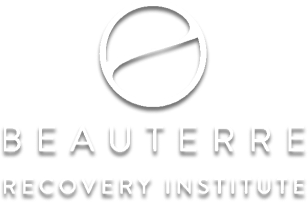“Change” is the process of making something different. It can be important to know “what to change” or “how to best change.” A neuropsychological assessment can be very helpful in identifying skills, weaknesses, perceptions, and projections.
As part of our addiction treatment programs at Beauterre Recovery Institute, a neuropsychological assessment is provided to incoming patients. Recovery from addiction is a big step. It is important to understand how your perception of your life and skill sets can support your recovery. We look at executive functioning skills, or the ability to take in information.
On-demand verbal and visual processing skills are assessed to identify how information is processed in stable as well as changing situations. The ability to accurately assess the world is important in recovery. Visual and verbal learning, encoding and memory skills are also assessed.
Projective and objective measures of personality are also measured. How we understand the world (as fearful, harmful, pleasant, etc.) creates perceptions and understandings that interfere with sense of self, safety and trust of other people.
Understanding the Brain’s Role in Addiction Recovery
The most powerful change agent in the body is the brain. The brain is a “warehouse” through which we experience life. It stores all knowledge, understanding, experiences, emotions, events, etc.
Past perceptions, understandings, feelings and memories are held in the brain. Current events, interactions and thoughts trigger these stored experiences. We can react to current events with past understanding and pain.
The Relationships Between Emotions and Trauma
The capacity to attach to people is developed early in infancy. Attachment is the first step into emotion. Emotions become responses to the events in life. For example: Not having love leads to feelings of shame and worthlessness oftentimes creating the need or desire for drugs, sex, aggression, etc. in order to feel.
Trauma creates the need for “pain-based” behaviors as a way to feel “in control” of the hurt. Trauma increases activity in the amygdala keeping us on high alert for the potential of harm or hurt. This also keeps us from thinking clearly and from feeling anything but fear and terror. Life shapes how we react.
Stuck, unexpressed and painful memories and emotions equal trauma. Connecting to feelings via art allows the feelings both movement and manifestation. The expression of those feelings “changes” the trauma through expression and release, resulting in healing.
Ongoing connection and expression of emotion facilitates improved and ongoing emotional and behavioral regulation. Healing trauma allows access to higher and more effective brain function.
A neuropsychological assessment can be very helpful in identifying the mental and emotional roadblocks that may be preventing full addiction treatment. By identifying these we’re better able to address the individual’s needs for a successful start toward recovery.
 Beauterre Recovery Institute
Beauterre Recovery Institute
